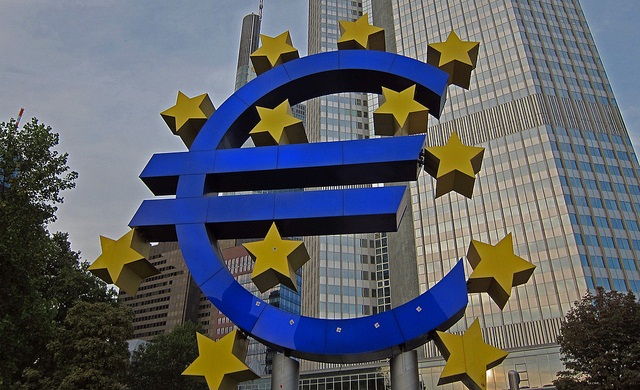The President of the European Central Bank predicts economic recovery in the third and fourth quarters of 2012.

Mario Draghi, President of the European Central Bank (ECB), has argued that he foresees economic recovery for Europe “in the second part” of 2013 as a result of national government’s “extraordinary” fiscal consolidation efforts.
In December the ECB predicted that the Eurozone will either expand or contract between a range of -0.9% and +0.4% in 2013.
Speaking at the World Economic Forum in Davos Mr Drahgi argued that the “perception we have at the ECB is that the level of economic activity is in the process of stabilizing at very low levels” and that “the most important strategic objective is to overcome the fragmentation that remains”.
“This year is starting in a context considerably different from last year” with financial markets currently experiencing “a renewed sense of relative tranquillity”, said Mr Draghi during the annual forum in Switzerland.
Earlier in the week the ECB announced 130bn euros, out of a total of 1tn made during 2011-12, worth of crisis loans would be repaid by European banks ahead of schedule.
Mr Draghi was speaking as the ECB prepares to take over control of the Eurozone’s banking supervision at the same time that the European Union due to submit proposals on how failed banks will be wound down.
The ECB President though tempered his remarks concerning growth by stating that improved economic conditions were dependent on Eurozone governments continuing to implement plans to cut budgets and deliver necessary structural reforms to improve export figures, create the conditions for new jobs and increase competitiveness.
Saying “the jury is still out” regarding further measures that the ECB may need to make Mr Draghi warned against a continuing series of loans as “there can’t be sustainable growth achieved through an endless creation of debt” but that “we have to admit that fiscal consolidation is contractionary in the short term”.
“The question is not growth versus consolidation, it is how do we mitigate the negative effects of short term fiscal consolidation.”


 Hot Features
Hot Features











